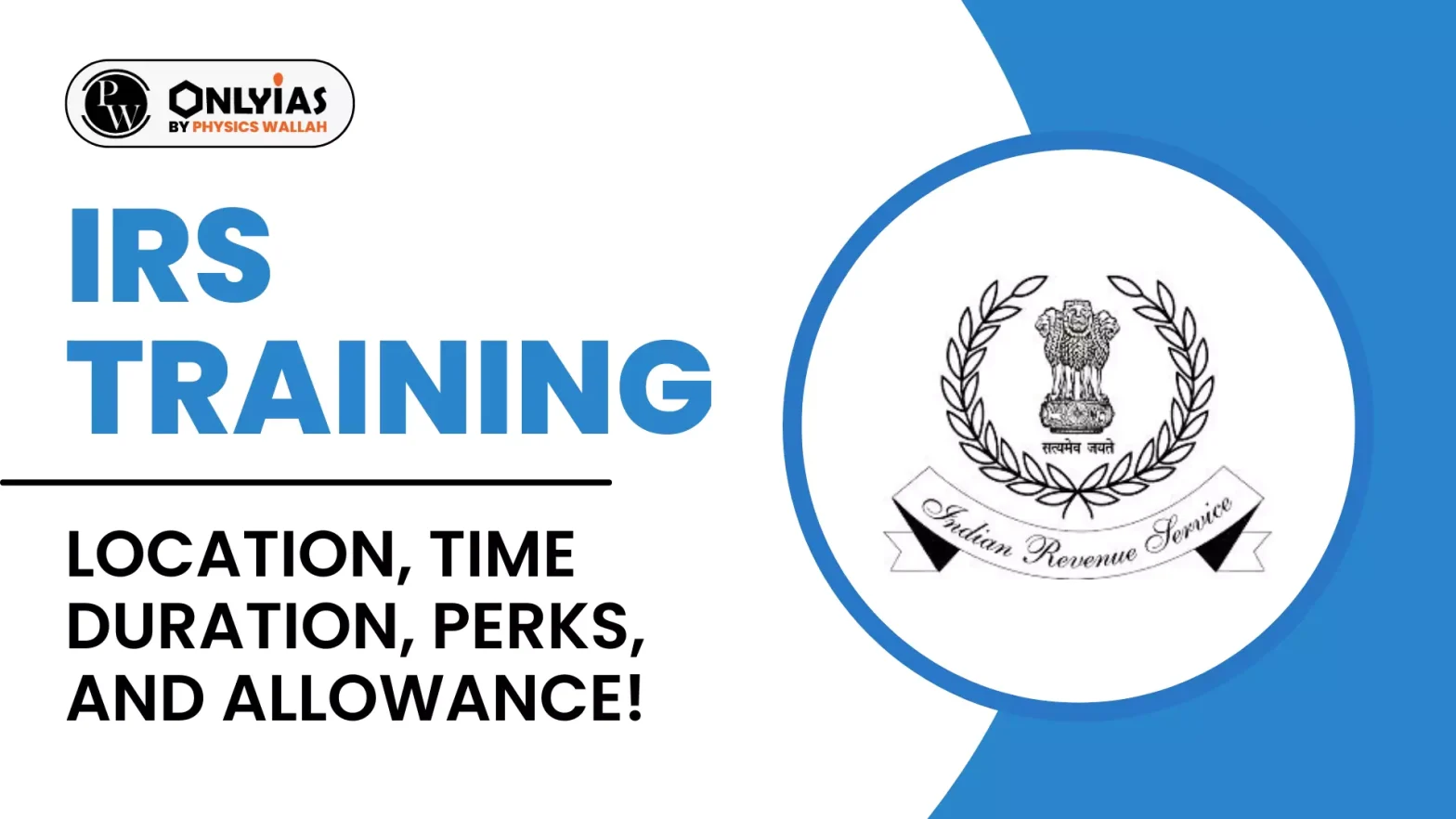IRS Training Location 2024: Discover the training locations, facilities, and programs for the Indian Revenue Service officers in 2024.

IRS training is conducted annually at the National Academy of Direct Taxes (NADT) in Nagpur. The Indian Revenue Service (IRS) is one of the most esteemed and desirable positions of all government jobs. This blog explains the IRS training location and IRS training period.
Candidates must pass the highly competitive UPSC Civil Services Examination to be eligible for IRS training and all other civil services. During IRS training, the main duties of IRS officer trainees such as Tax levies, tax collections, and the prosecution of anyone suspected of tax evasion will be taught.
In addition to being given a plethora of duties and obligations, Indian Revenue Services officers receive allowances from the Indian government. Moreover, we will discuss the perks of IRS training.
IRS training Location for officer trainees is the National Academy of Direct Taxes (NADT), which is in Nagpur. Following the final selection process conducted by the UPSC IRS exam, candidates who are allotted IRS positions will be sent for NADT for IRS Training. Following a four-month foundation course, IRS officers receive 16 months of intensive training.
These IRS training programs are specifically tailored to topics such as public finances, accounting, taxation, office processes, and fiscal policy. After that, IRS officers are dispatched to different field offices and organizations throughout India and beyond during the IRS training period to provide them with exposure to the world’s best taxing procedures.
After passing the UPSC Civil Services exam, candidates hired by the Indian Revenue Service must go through a probation period of IRS training. Understanding the work profile, responsibilities, and duties assigned to an IRS Officer can be gained through IRS training.
Through the IRS training program, IRS officers will have an understanding of the job demands they will encounter during their tenure. The officer trainees receive training on the Indian Taxation System during this period, which is also referred to as the Probation Period. An IRS officer’s probationary period is 16 months.
Usually, the IRS training program lasts 16 months and is broken up into multiple phases:
Foundation Course: All civil service officers must complete the Foundation Course (FC), which is often held at Mussoorie’s Lal Bahadur Shastri National Academy of Administration (LBSNAA). This three-month IRS training concentrates on fundamental administrative principles and abilities.
Phase I: This phase, which is carried out at NADT or NACIN, lasts for roughly ten months. It consists of practical activities, field trips, and classroom instruction.
On-the-Job instruction (OJT) Phase: The On-the-Job instruction (OJT) is for 3 months. The officers receive practical instruction across various sectors and environments.
Phase II: Advanced subjects and specializations are the emphasis of this final phase, which lasts roughly two months.
The IRS Officer Salary and additional benefits serve as a driving force for a dedicated UPSC civil service candidate, encouraging them to put in more effort and strive for that position.
The below table shows the IRS officer salary as per the 7th Pay Commission Norms for different positions:
| IRS Post | IRS Salary per month
(INR) |
Grade Pay
(INR) |
| Assistant Commissioner of Income Tax | 56,100-1,77,500 | 5,400 |
| Deputy Commissioner of Income Tax | 67,700-2,08,700 | 6,600 |
| Joint Commissioner of Income Tax | 78,800-2,09,200 | 7,600 |
| Additional Commissioner of Income Tax | 1,23,100-2,15,900 | 8,700 |
| Commissioner of Income Tax | 1,44,200-2,18,200 | 10,000 |
| Principal Commissioner of Income Tax | 1,82,200-2,24,100 | Nil |
| Chief Commissioner of Income Tax | 2,05,400-2,24,400 | Nil |
| Principal Chief Commissioner of Income Tax | Rs.2,25,000 (Fixed) | Nil |
In addition to the salary, IRS officers also receive the perks and benefits of IRS Training listed below:
A medical allowance may be paid out of the IRS Officer salary if they require medical care.
Depending on their position, IRS officers are entitled to one, two, or three official vehicles for official usage, along with drivers.
IRS officers are offered with security forces of two bodyguards and three home guards offer security.
For officers employed in 8 X category cities, HRA will be 24%. Those who serve in the Z category cities will receive an HRA value of 8%, whilst those deployed to Y category locales will receive a value of 16%.
IRS officers are compensated with a Travel Allowance to defray appropriate travel expenses.
IRS officers receive lodging in the state capital along with a service quarter where they are assigned.
Officers receive three BSNL SIM cards with free internet, SMS, and voice time. They also have a free broadband connection and a landline from BSNL at home.
IRS officers will also receive Dearness Allowance (DA) and City Compensatory Allowance (CCA).
Along with additional benefits, IRS officers receive a lifetime pension upon retirement. The nominees are entitled to the same benefits if they pass away after retirement.
IRS training is a comprehensive and multifaceted process designed to equip officers with the knowledge and skills necessary to effectively perform their duties. With IRS training locations vary as per the course phases, flexible time durations, and a variety of perks and allowances, the IRS ensures that its workforce remains competent and motivated. For UPSC aspirants considering a career with the IRS, understanding the scope and benefits of the IRS training programs can be a crucial factor in making an informed decision.
Join online UPSC courses at Physics Wallah! Fulfill your UPSC dreams!

<div class="new-fform">
</div>